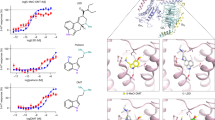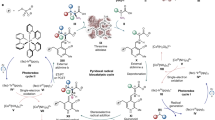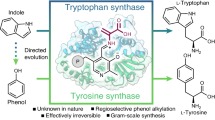Abstract
PROSTACYCLIN (prostaglandin X, PGI2), a newly discovered prostaglandin1–3, is formed by microsomes from several organs, such as pig and rabbit aorta2 and rat stomach4, and by fresh human arterial and venous tissue incubated with PGH2 (ref. 5). As inhibitor of blood platelet aggregation, it is 30 times more potent than PGE1 (ref. 2) and could thus help in preventing the formation of intra-arterial thrombi. It has been suggested1 that the endoperoxides released by the platelets can be converted into prostacyclin by vascular tissue. Prostacyclin is chemically unstable in aqueous solution: it hydrolyses to 6-oxo-PGF1α (refs 3, 4; Fig. 1) which does not inhibit platelet aggregation2. We report that isolated perfused rabbit and rat hearts produce a labile factor which strongly inhibits blood platelet aggregation; the release of this substance is abolished by indomethacin. Using a physicochemical method, we found 6-oxo-PGF1α in substantial amounts in the perfusates. These findings indicate that prostacyclin is the major prostaglandin released from the heart.
This is a preview of subscription content, access via your institution
Access options
Subscribe to this journal
Receive 51 print issues and online access
$199.00 per year
only $3.90 per issue
Buy this article
- Purchase on Springer Link
- Instant access to full article PDF
Prices may be subject to local taxes which are calculated during checkout
Similar content being viewed by others
References
Moncada, S., Gryglewski, R. J., Bunting, S. & Vane, J. R. Nature 263, 663–665 (1976).
Gryglewski, R. J., Bunting, S., Moncada, S., Flower, R. J. & Vane, J. R. Prostaglandins 12, 685–713 (1976).
Johnson, R. A. et al. Prostaglandins 12, 915–928 (1976).
Pace-Asciak, C. J. Am. chem. Soc. 98, 2348–2349 (1976).
Moncada, S., Higgs, E. A. & Vane, J. R. Lancet i, 18–22 (1977).
Kloeze, J. Biochim. biophys. Acta 187, 285–292 (1969).
Weeks, J. R., Schultz, J. R. & Brown, W. E. J. appl. Physiol. 25, 783–785 (1968).
Wennmalm, Å & Jungstad, M. Acta physiol. scand. 97, 60–65 (1976).
Wickramasinghe, A. J. F. & Shaw, R. S. Biochem. J. 141, 179–187 (1974).
Jouvenaz, G. H., Nugteren, D. H., Beerthuis, R. K. & Van Dorp, D. A. Biochim. biophys. Acta 202, 231–234 (1970).
Ross, R. & Glomset, J. A. New Engl. J. Med. 295, 369–377, 420–425 (1976).
De Deckere, E. A. M. & Ten Hoor, F. Pfliigers Archics (in the press).
Author information
Authors and Affiliations
Rights and permissions
About this article
Cite this article
DE DECKERE, E., NUGTEREN, D. & TEN HOOR, F. Prostacyclin is the major prostaglandin released from the isolated perfused rabbit and rat heart. Nature 268, 160–163 (1977). https://doi.org/10.1038/268160a0
Received:
Accepted:
Issue Date:
DOI: https://doi.org/10.1038/268160a0
This article is cited by
-
α2-Adrenoreceptor mediated sympathoinhibition of heart rate during acute hypoxia is diminished in conscious prostacyclin synthase deficient mice
Pflügers Archiv - European Journal of Physiology (2007)
-
Effects of intravenous administration of prostacyclin on regional blood circulation in awake rats
British Journal of Pharmacology (1999)
-
Effect of selenium and vitamin E supplements on tissue lipids, peroxides, and fatty acid distribution in experimental diabetes
Lipids (1998)
-
Endogenous cardiac vasoactive factors modulate endothelin production by cardiac fibroblasts in culture
Endocrine (1996)
-
A study on the effects of cyclo-oxygenase and thromboxane synthetase inhibitors on right atrial prostacyclin and thromboxane A2 levels
Indian Journal of Thoracic and Cardiovascular Surgery (1996)
Comments
By submitting a comment you agree to abide by our Terms and Community Guidelines. If you find something abusive or that does not comply with our terms or guidelines please flag it as inappropriate.



